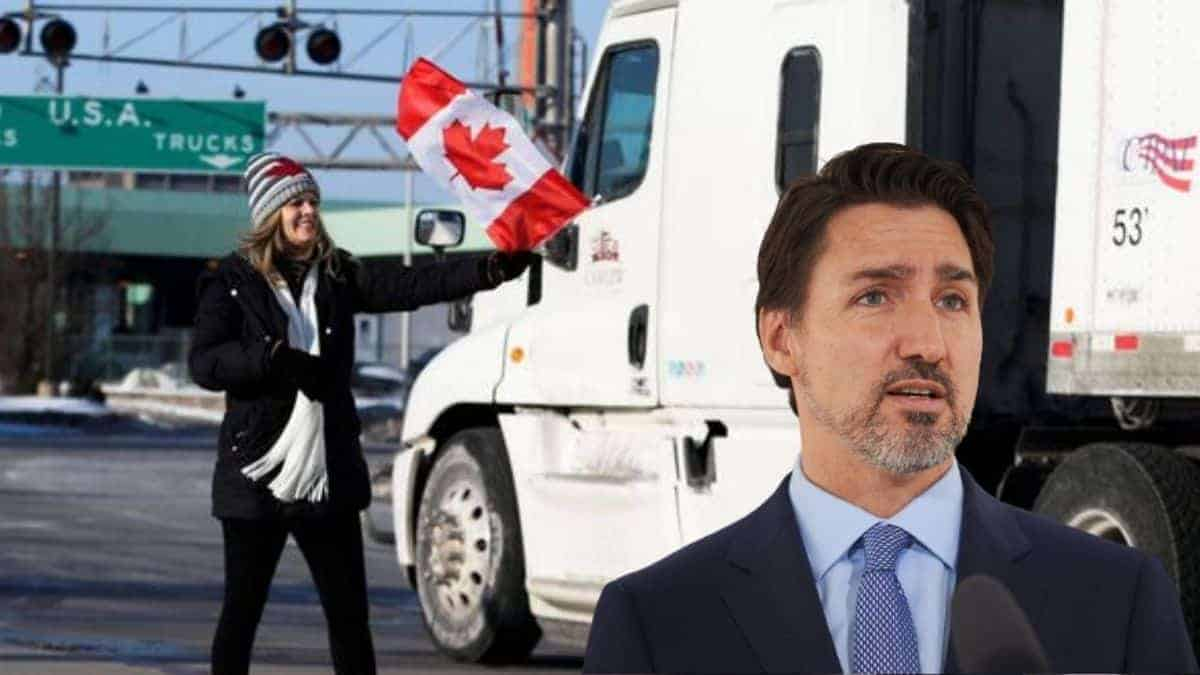Canadian Truckers in trouble as Justin Trudeau imposes emergency powers to end protest

To resolve protests that have shut down several border crossings and paralysed parts of the capital, Canadian Prime Minister Justin Trudeau announced on Monday that he will utilise rarely used emergency measures, including shutting off funding.
The government responded by introducing extensive steps to help police forces and bring crowdfunding platforms under terror financing control, claiming that the protests were harming the economy and Canada’s reputation as a trusted trading partner.
People opposed to Trudeau’s policies on everything from pandemic restrictions to a carbon tax have joined the “Freedom Convoy” rallies, which began with Canadian truckers opposing a COVID-19 vaccinate-or-quarantine rule for cross-border drivers.
“The blockades are damaging our economy and putting public safety in jeopardy,” Trudeau said at a press conference. “Illegal and harmful acts must and will not be tolerated.”
Protesters blocked the Ambassador Bridge, a crucial trade route to Detroit, for six days before police evacuated the area on Sunday, while smaller border crossings in Alberta, Manitoba, and British Columbia have been closed.
Frustration has developed as a result of what many regard as a permissive police response to rallies in Windsor, Ontario, and Ottawa, the nation’s capital, where protests are now in their third week.
“Despite their best efforts, it is clearly evident that law enforcement’s ability to properly enforce the law faces major obstacles,” Trudeau said.
The federal government can override the provinces and authorise exceptional temporary measures to ensure security during national emergencies under the 1988 Emergencies Act. Trudeau’s father, former Prime Minister Pierre Trudeau, utilised the statute once earlier in peacetime, in 1970.


